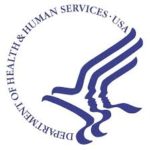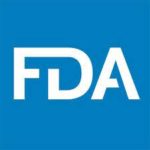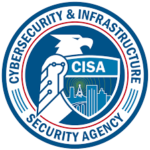The following is the latest health policy news from the federal government for May 19-25. Some of the language used below is taken directly from government documents.
Congress
The House Energy and Commerce Committee has advanced to the full House two bills with significant implications for health care providers.
- H.R. 3561 calls for delaying $8 billion a year in Medicaid DSH cuts for two years – cuts scheduled to take effect in October; imposing site-neutral payments for drug infusion services provided in off-campus hospital outpatient departments; imposing stronger price transparency requirements on hospitals; and requiring hospitals to report selected ownership information to the federal government.
- H.R. 3290 would impose new reporting requirements on participants in the 340B prescription drug discount program.
 Centers for Medicare & Medicaid Services
Centers for Medicare & Medicaid Services
- CMS has updated its FAQ on waivers and flexibilities after the end of the COVID-19 public health emergency. Among the issues the revised FAQ addresses are hospital billing for services delivered via telehealth, including such matters as billing for originating site facility fees (including when patients are served by hospital-based outpatient departments), clinic visits, mental health services provided remotely; and billing for “hospitals without walls” services. The FAQ also addresses changes in COVID-19-related reporting requirements, provider payments for administering COVID-19 vaccines and performing COVID-19 tests, and more. The FAQ indicates that in some circumstances CMS is exercising its discretion not to enforce certain requirements through the end of calendar year 2023 but could revisit those decisions next year. Learn more from the updated FAQ.
- HHS has proposed several measures to reduce prescription drug costs in Medicaid. A proposed regulation would give CMS greater insight into what the most expensive drugs on the market today actually cost to manufacture and distribute and give CMS and states additional tools, like a drug price verification survey, to foster greater transparency about manufacturers’ drug prices. Another proposed provision seeks to enhance transparency about the costs of administering drug benefits in Medicaid managed care plans by proposing that contracts between states, Medicaid managed care plans, and third-party contractors, such as pharmacy benefit managers (PBMs), reflect transparent reporting of drug payment information among third-party contractors. The proposed rule also seeks to address the potential misclassification of drugs as brand name or generic through provisions that seek to ensure that states receive the rebates to which they are entitled. Learn more about these proposals from this CMS news release; this CMS fact sheet; a pre-publication version of the proposed regulation; and a separate CMS fact sheet on the Medicaid drug price verification survey and CMS’s plan for addressing PBM drug price transparency.
- CMS’s Office of Minority Health has released a report detailing the quality of care received by people enrolled in Medicare Advantage. The report presents summary information on the performance of Medicare Advantage plans on specific measures of quality of health care reported in 2021, which corresponds to care received in 2020. Specifically, this report compares the quality of care for four groups of Medicare Advantage enrollees that are defined based on the combination of two characteristics: dual eligibility for Medicare and Medicaid or eligibility for a Part D Low-Income Subsidy (LIS) and disability. Overall, the report shows that people who were dually eligible for Medicare and Medicaid or eligible for the low-income subsidy received worse clinical care than those who were not. The report also shows more pronounced disparities in clinical care for dually eligible/low-income subsidy-eligible individuals in urban areas as compared to rural areas. Learn more from the report “Disparities in Health Care in Medicare Advantage Associated with Dual Eligibility or Eligibility for a Low-Income Subsidy and Disability.”
- CMS is offering a second explainer video in a series of micro-learning assets to promote provider understanding of the Inpatient Rehabilitation Facility (IRF) – Patient Assessment Instrument (PAI) 4.0 and Long-Term Care Hospital (LTCH) Care Data Set (LCDS) 5.0 guidance. This brief video is intended to help providers accurately code new pain interview items and also addresses pain assessment strategies and associated patient communication challenges. Find the training video here.
- CMS has hired an external contractor to develop episode-based cost measures for non-pressure ulcers and movement disorders such as Parkinson’s disease, multiple sclerosis, ALS, and Huntington’s disease. That contractor, in turn, is establishing workgroups to provide clinical input on these specifications and is seeking interested parties to serve on those workgroups. Learn more about the workgroups, the specific backgrounds sought among participants, and the process for applying to serve from this notice. The deadline for applying is June 2.
 Department of Health and Human Services
Department of Health and Human Services
- HHS and the non-profit organization Baby2Baby have announced a new pilot program to distribute a one-time only Newborn Supply Kit made up of essential goods and critical maternal health items to new mothers and their infants. HHS and Baby2Baby will first distribute 3,000 of the Newborn Supply Kits across Arkansas, Louisiana, and New Mexico, states experiencing deep levels of family poverty, through hospitals and community-based partner organizations. Learn more about the program from this HHS news release and this program description.
- HHS and its Health Resources and Services Administration (HRSA) have awarded more than $65 million to 35 HRSA-funded health centers to address the maternal mortality crisis. HRSA’s funds will be used to implement innovative approaches to improve maternal health outcomes and reduce disparities for patients at highest risk. Learn more from this HHS announcement and find a list of the grant recipients here.
- HRSA has posted an update on its Organ Procurement and Transplantation Network (OPTN) modernization initiative. Find that update here.
- HHS has posted a fact sheet with resources on ways communities can stay protected from mpox in advance of the coming summer months. Find that fact sheet here.
- The Substance Use Disorder Prevention that Promotes Opioid Recovery and Treatment for Patients and Communities Act of 2018 directed HHS to conduct a 54-month demonstration project designed to increase the capacity of Medicaid providers to deliver substance use disorder treatment or recovery services and further directed HHS to report to Congress on that demonstration project. HHS has now submitted its planning grant implementation initial report to Congress. Find that report here.
- HHS’s Office of the National Coordinator for Health Information Technology (ONC) has published a draft USCDI+ Quality data element list for public comment and the USCDI+ Quality Draft Data Element List Overview Guide and seeks stakeholder feedback on this first draft of the USCDI+ Quality data element list, especially on its level of completeness, level of specificity, and usefulness of companion guidance. Comments are due June 16. For an explanation of what ONC is doing, links to the draft data elements, and information about how to submit comments, see this ONC announcement.
- The Surgeon General has issued an advisory about the effects of the use of social media on the mental health of young people. Go here for an HHS news release about the advisory and a link to the advisory itself.
HHS Newsletters
Provider Relief Fund
- HHS has posted the following deadlines for certain Provider Relief Fund-related activities.
- June 2 – the reporting portal closes for request to report late-approved providers.
- June 30 – deadline to apply Provider Relief Fund and/or American Rescue Plan rural funds to lost revenues.
- July 1 – reporting period 5 begins
 Food and Drug Administration
Food and Drug Administration
- The FDA has approved the first nalmefene hydrochloride nasal spray for the emergency treatment of known or suspected opioid overdose in adults and pediatric patients 12 years of age and older. Learn more about the FDA’s action and the approved nasal spray from this FDA news release.
- The FDA has approved an extended-release injection version of buprenorphine to treat moderate to severe opioid use disorder. Learn more about this new treatment from this FDA news release.
- The FDA has approved the oral antiviral Paxlovid for the treatment of mild-to-moderate COVID-19 in adults who are at high risk for progression to severe COVID-19, including hospitalization or death. Paxlovid is the fourth drug – and first oral antiviral pill – approved by the FDA to treat COVID-19 in adults. Learn more from this FDA announcement.
Centers for Disease Control and Prevention
The CDC has announced a new funding opportunity for the creation of an outbreak response network for disease forecasting to support decision-makers during public health emergencies. The network will seek to support building and scaling needed capabilities and working with the private sector, academic, and jurisdiction partners to use data effectively before and during public health emergencies. Learn more from this CDC news release, which includes a link to further information about the funding notice. The deadline for applications is July 14.
National Institutes of Health
A new study funded by the NIH and its National Institute on Minority Health and Health Disparities highlights the financial toll of health disparities in the U.S. The study found that in 2018, racial and ethnic health disparities cost the U.S. economy $451 billion, a 41 percent increase from a 2014 estimate of $320 billion. The study also found that the total burden of education-related health disparities for persons with less than a college degree in 2018 was $978 billion, about two times greater than the annual growth rate of the U.S. economy in 2018. Learn more from this NIH news release, which includes a link to the study’s key findings and the study itself.
 Cybersecurity and Infrastructure Security Agency (CISA)
Cybersecurity and Infrastructure Security Agency (CISA)
The U.S. Cybersecurity and Infrastructure Security Agency, FBI, National Security Agency (NSA), and Multi-State Information Sharing and Analysis Center have published the “#StopRansomware Guide,” an updated version of a 2020 guide to help organizations reduce the risk of ransomware incidents through best practices to detect, prevent, respond, and recover, including step-by-step approaches to addressing potential attacks. The update incorporates lessons learned from the past two years, including recommendations for preventing common initial access techniques, such as compromised credentials/passwords and advanced forms of social engineering; recommendations to address cloud security backups; and threat hunting tips for detection and analysis. Go here for a news release describing the updated guide and for a link to the guide itself.
Stakeholder Events
CMS – Health Equity Conference – June 7-8
CMS will hold a health equity conference in Washington, D.C. on Wednesday, June 7 and Thursday, June 8; the conference also will be streamed for virtual participation. Learn more about the conference agenda, speakers, and how to register to participate and find an FAQ in this CMS notice.
CDC – Healthcare Infection Control Practices Advisory Committee Meeting – June 8-9
The CDC’s Healthcare Infection Control Practices Advisory Committee will hold public meetings on Thursday, June 8 and Friday, June 9 at 9:00 (eastern) on both days. The agenda includes updates on CDC activities for the prevention of health care-associated infections and reports from various subcommittees. Individuals may participate in person or virtually and registration is required. Learn more about the meeting and how to register and participate from this CDC announcement.
CMS – Skilled Nursing Facility MDS 3.0 RAI v1.18.11 Guidance Training Program – June 21
CMS is offering a virtual training program that provides instruction on its updated guidance for the Skilled Nursing Facility Minimum Data Set 3.0 Resident Assessment Instrument (RAI) v1.18.11 Manual and Item Set. The program includes recorded training webinars and live, virtual workshop sessions that provide practice coding scenarios on selected data elements. The live component will be held on Wednesday, June 21 at 12:30 (eastern). Learn more about the program from this CMS announcement and go here to register to participate.
HHS – Agency for Healthcare Research and Quality – Meeting of the National Advisory Council for Healthcare Research and Quality – July 12
The Agency for Healthcare Research and Quality’s National Advisory Council for Healthcare and Research and Quality will meet virtually on Wednesday, July 12 at 11:15 (eastern). For information about the council, the meeting’s agenda, and how to participate, see this agency notice.

 Centers for Medicare & Medicaid Services
Centers for Medicare & Medicaid Services